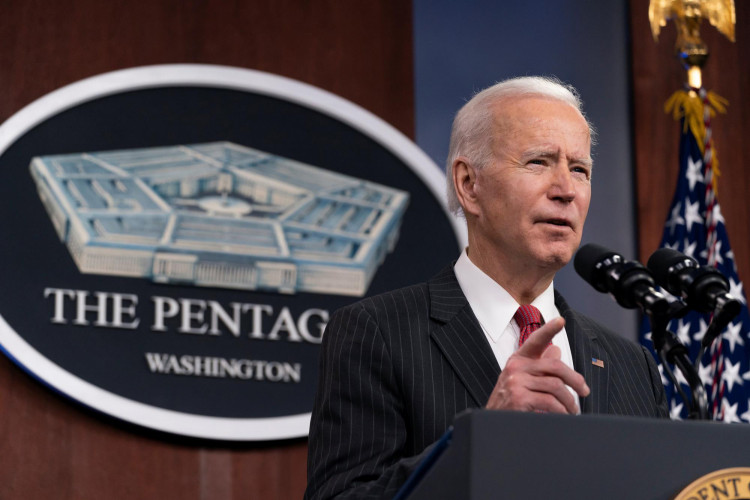The United States quietly launched more than two dozen cyberattacks against Russia, Iran, and other adversary countries -- but not China -- to prevent these states from intervening in the 2020 U.S. general election that saw the victory of Joe Biden.
Gen. Paul Nakasone, Commander of the United States Cyber Command and concurrently Director of the National Security Agency, told the Senate Armed Services Committee his command had conducted more than two dozen missions to block foreign adversaries' efforts to undermine voting integrity before the elections that were held in Nov. 3, 2020.
"Over the past year, I emphasized the importance of defending the election against foreign interference," said Nakasone. "U.S. Cyber Command conducted more than two dozen operations to get ahead of foreign threats before they interfered or influenced our elections in 2020."
Nakasone said defending American elections has become a key mission for the Department of Defense. This task has mostly fallen to Cyber Command, one of 11 unified combatant commands of the DoD charged with unifying the direction of cyberspace operations and strengthening DoD cyberspace capabilities.
While Nakasone didn't name the adversary states, it's always been clear the most dangerous U.S. foes in the cyber realm are Russia, North Korea, China, and Iran.
On the other hand, the Office of the Director of National Intelligence this month in a declassified assessment of the 2020 election, pinpointed Russia, Iran, Cuba, Venezuela and the armed wing of the Shia Islamist political party Hezbollah in Lebanon as conducting influence operations against the U.S. China did not engage in any activity associated with the election, said ODNI.
Nakasone said his command built on lessons learned from earlier cyber operations. Cyber Command also strengthened partnerships with other federal agencies involved in cyber operations such as the Department of Homeland Security and the FBI to ensure a secure election.
He lauded a new tool called the Cyber 9-Line developed in partnership with the National Guard Bureau across the states to allow them to share threat information. The tool is a portal enabling states' National Guard units to pass potential threat information to Cyber Command.
Nakasone said Cyber Command used this tool to defeat foreign cyberspace operations. The Cyber 9-Line lso gave Cyber Command a way to alert states about potential threats discovered during operations. He said every state joined the effort prior to the election.
An intelligence assessment issued earlier this month by ODNI said there were "no indications" any U.S. voting processes were altered in 2020 by any foreign nation. Several adversaries engaged in influence campaigns in attempts to sway the election outcome.






